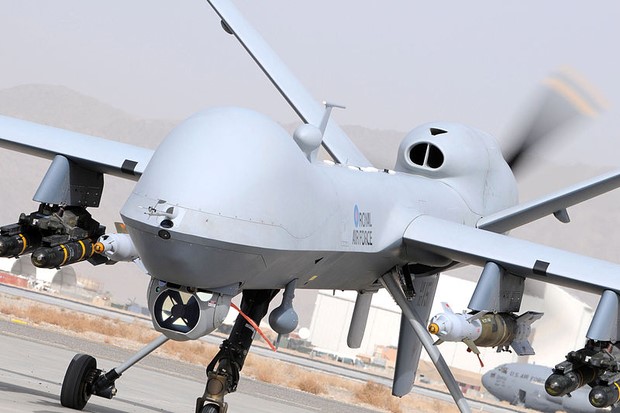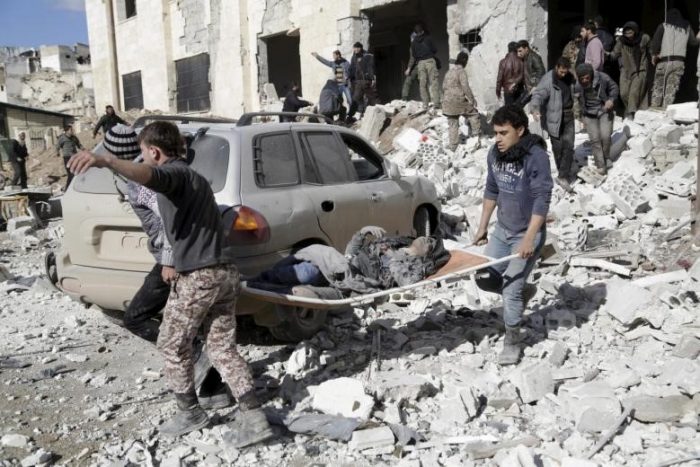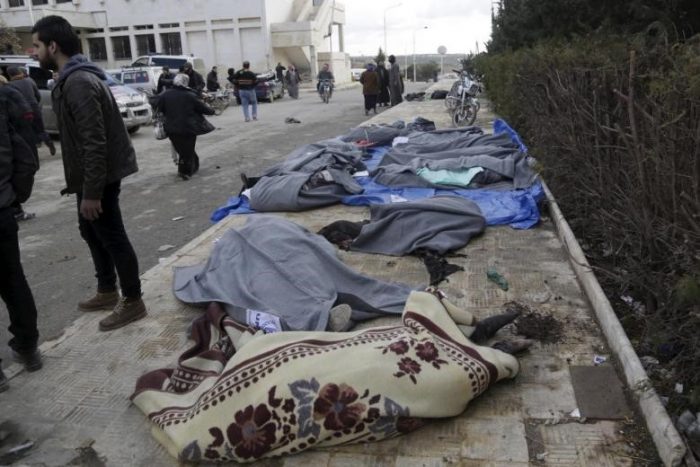Britain Deploys Highly-Lethal “Vacuum Bomb,” a Weapon too “Cruel” for the U.S.
By Felipe Bueno
Editor-in-Chief
British, French, and American forces captivated media attention with their recent bombing of chemical weapon systems in Syria. However, the allies’ use of more military force in the seven year-long conflict overshadowed the United Kingdom’s newfound willingness to wage a more aggressive type of combat.
British officials recently admitted to carrying out bombings that utilize thermobaric weapons, often referred to as “vacuum Bombs,” against the Islamic State Group in Syria earlier this year, reports Middle East Eye.

Vacuum bombs disperse a cloud of flammable liquid into the air around a target and then ignite it, reports Popular Mechanics. The resulting explosion is longer and hotter than an explosion from a conventional weapon. The bomb gets its name from the partial vacuum that is created when all the oxygen in the vicinity is consumed.
Unlike explosions from traditional weapons systems that utilize shrapnel to damage targets, the high-temperature and high-pressure explosions cause damage to the internal organs of a target. Targets are killed from the damage to their internal organs, specifically the damage done to their lungs. Due to their impact on ambient oxygen, vacuum bombs are most effective against targets in enclosed spaces like caves, buildings, or tunnels.

Vacuum bombs are controversial because they blur the lines between “discriminate” and “indiscriminate” weapons. Customary International Humanitarian Law prohibits any weapon which is inherently unable to discriminate between targets and civilians, pursuant to Article 8(2)(b)(xx) of the International Criminal Courts’s Rome Statute. Due to the vacuum bomb’s large blast radius and its effectiveness in enclosed spaces, its legality has been called into question by international law groups.
The press release by the British Ministry of Defense that admitted to utilizing vacuum bombs was also the first time that the British government admitted to killing civilians in its Syrian bombing campaign.

Thermobaric weapons were initially developed by the Soviet Union in their invasion of Afghanistan. Since their creation, they have been used sparingly and further development of thermobaric weapons by the U.S. army was halted as the weapons proved to be “cruel and unnecessary,” reports Forbes.
Thermobaric weapons were used in recent years by Russian forces in Syria. According to Reuters, the Russian air force carried out airstrikes in rebel-controlled areas in the Idlib province. However, the Russians refuse to use vacuum bombs frequently due to their destructive nature.



